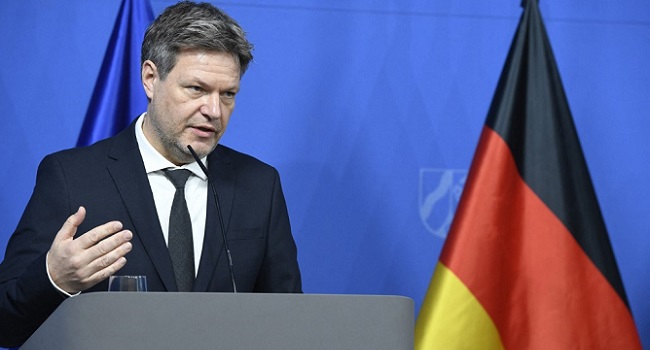Germany’s economy minister said the country could do without Russian gas. But that won’t be easy.
Europe’s industrial powerhouse currently relies on Russia’s Gazprom PJSC for more than half its gas. And if anything, demand will only grow as the country phases out nuclear and coal-fired electricity. No. 2 supplier Norway is already pumping at full tilt, and Germany has no means of importing liquefied cargoes.
“Germany have shot themselves in the foot with nuke and coal closures,” Tim Partridge, head of energy trading at DB Group Europe, said Wednesday. It’s vulnerable when renewable output falls short and gas is in short supply, pushing up prices as seen last year, he said.
Economy Minister Robert Habeck told Deutschlandfunk radio Wednesday that “the possibility that Germany gets enough gas and enough resources beyond Russian gas imports is there.”
He was speaking after Chancellor Olaf Scholz effectively froze approval for Russia’s controversial Nord Stream 2 gas pipeline to Germany amid a dramatic escalation of tensions between Russia and the West over Ukraine.
Ukraine Update: Putin Says Still Open to ‘Diplomatic Solutions’
Minister Habeck cautioned against “too much speculation,” saying energy ties with Russia have survived previous crises. He also said the halt to the Nord Stream 2 certification process doesn’t mean the pipeline is off the table for good.
Germany is gradually taking its remaining reactors and coal-fired plants offline as it ditches nuclear and looks to move away from the dirtiest fossil fuel. An increase in gas use could help fill that gap. Yet that potentially conflicts with efforts to curb reliance on Russia — and on fossil fuels in general — while plans to start importing liquefied natural gas have faced numerous hurdles.
Bringing in LNG “will never be enough to replace Russian gas fully,” said Hans van Cleef, a senior energy economist at ABN Amro Bank NV. “Perhaps they replace it a bit, with longer and more use of coal-fired power plants, but that obviously conflicts with the climate goals.”

